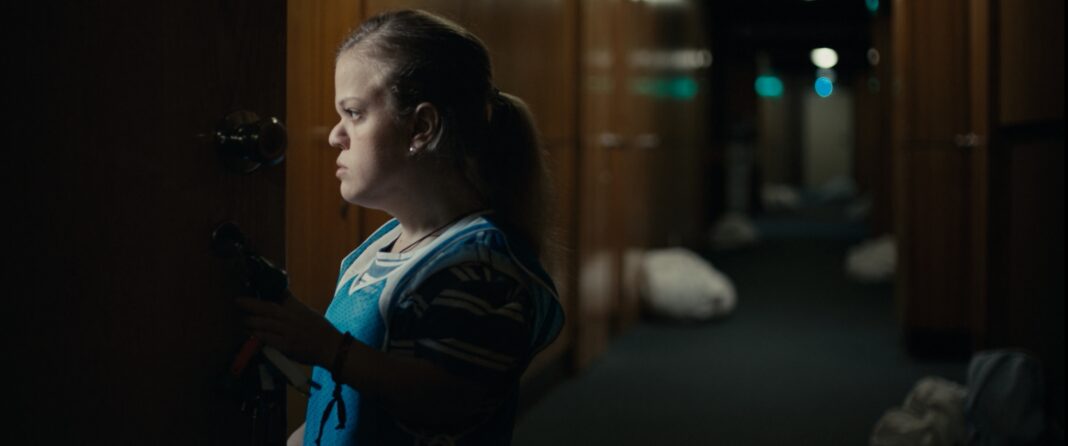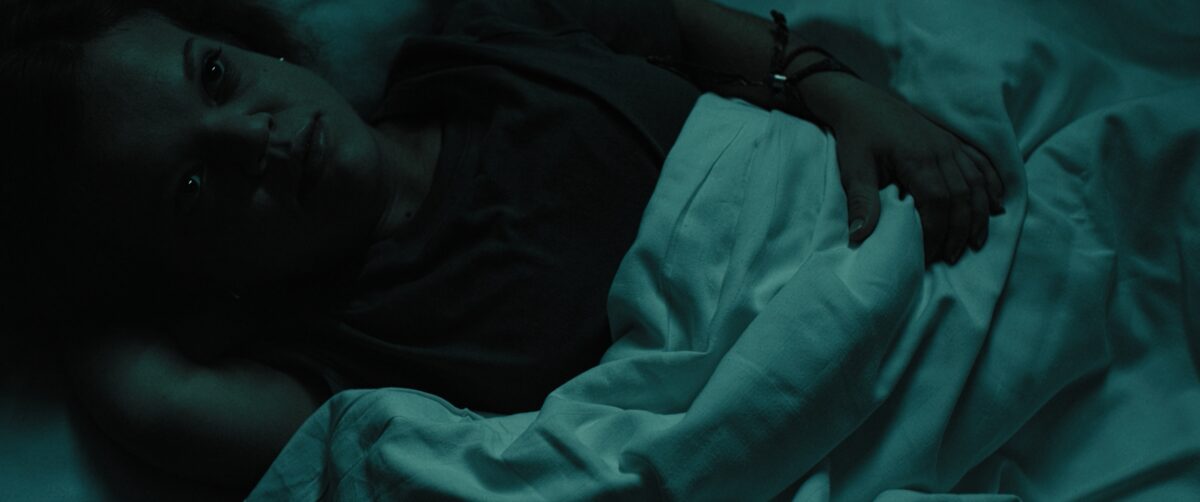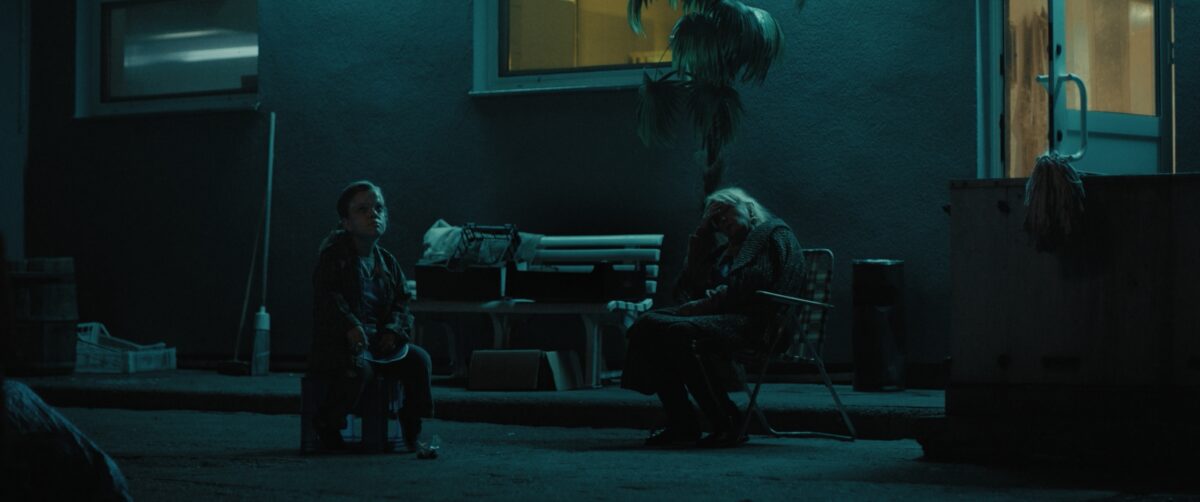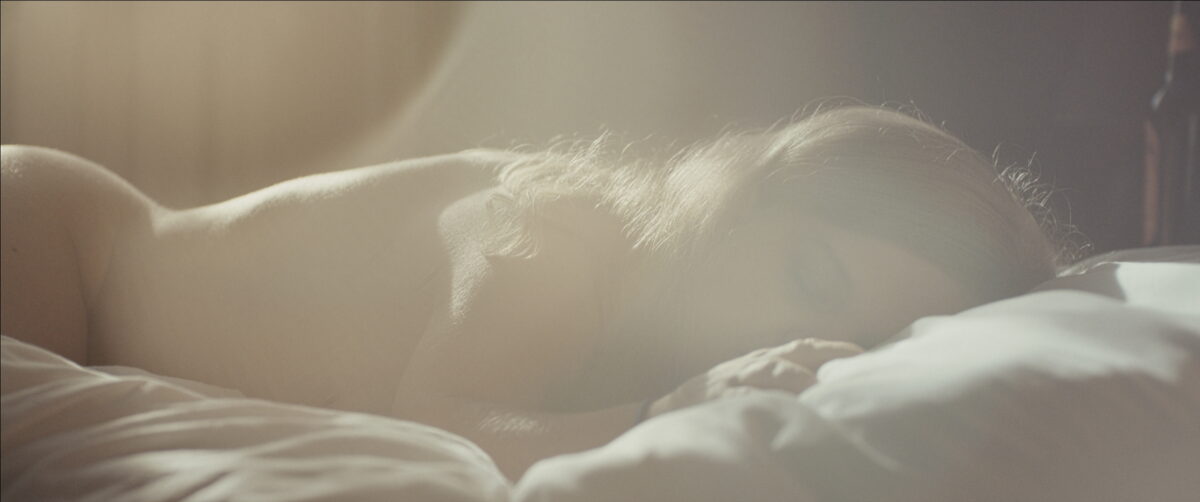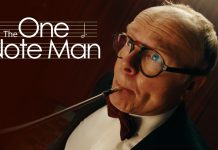Tadeusz Lysiak reflects on the challenges of a woman trying to find love in the powerful short THE DRESS.
Film And TV Now spoke with the film-maker about the short.
FILM AND TV NOW: The film is very much about perspective as much about the challenges that Julia faces in her day-to-day life. What was the start-off point for the short?
TADEUSZ LYSIAK: Since I think of myself primarily as a storyteller, each subsequent project is for me, first of all, a question about what interests me in the world, what hurts me and what I would like to pass on to others.
It was no different with THE DRESS – I understood that the world can be cruel, mean, and that it can very quickly exclude anyone who does not fall within the broadly understood canons of so-called normality. This is especially visible in Poland. So I wanted to create a story about loneliness, rejection and incomprehension.
The heroine of short stature seemed to me a particularly good carrier of this story – she was original, unique and very powerful inside. Everything started to come together and I realized that maybe I am creating something important, something that will affect people and allow them to reflect on the condition of society. It was a great feeling to understand that you had something that mattered in your hands.
FTVN: The sexual perspective of Julia is explored throughout the film, culminating in the climactic scene which alternates in tone, perhaps shockingly. What were the challenges shooting these scenes?
TL: Sex in this film plays a very important role, but not because I would like to dazzle with physicality, but because it can be an intimate, internal, spiritual experience.
I wanted to show that it is an inseparable part of our lives and that its absence is often associated with general loneliness. Each of us wants to be loved and each of us wants to love. Some are deprived of this right only because they are “different”, society condemns them to wander alone. When it comes to shooting intimate scenes that ultimately turn out to be something scary and sad, it was a very difficult experience for the entire crew.
We watched the takes in silence, sometimes only exchanging whispers. We knew we were dealing with evil – and that is always a terrifying experience. This was especially true for the main actress, who for the first time played such an important and large role in the film, and often suffered rejection because of her height.
FTVN: Tell us about your cast.
TL: Casting the main role seemed to be the biggest challenge for us, but I had Anna Dzieduszycka in my head while writing the script, since we knew each other before and I had the opportunity to work with her during one of my exercises at the Warsaw Film School.
We met, I gave her the script to read and she immediately agreed to play in it. She said that this scenario is close to the truth and is something really important. Anna is not a professional actress, so we knew it would be a challenge for us (and most of all for me) – but all doubts were cleared on the first day of filming. Anna has turned out to be a unique and excellent actress and I am extremely proud to discover her for the world.
As for the other actors, I was very keen on finding professionals who would take on this difficult task. Here, Szymon Warszawski and Dorota Pomykała came to the rescue – outstanding Polish actors with whom I had a great time working on the set. Both of these characters are incredibly important to the story.
FTVN: Tell us about your production team.
TL: I was lucky that we managed to put together a great team of really talented people.
We are talking about literally everyone: from my cinematographer Konrad Bloch, through editor Mariusz Gos, production manager Monika Ossowska, set design, costumes and make-up made by the MUS team, sound post-production, composer – everyone did a great job and everyone created this film together.
Producers also helped in everything – the Warsaw Film School (the best film school in the world!), DOBRO, Miło, Głośno. It was a great experience to work with all of them.
FTVN: Where did you shoot and for how long?
TL: It’s been seven really tough days of filming. My script was 31 pages and 52 scenes long – you can imagine how difficult it was to fit it all into that time on a tight budget and a small crew. But it all worked out.
We shot the film in several locations in and around Warsaw – the hotel corridors were filmed in a different location than the outer part, because Konrad and I were very keen on the final visual effect, and some places had great interiors while others had better outdoor spaces.
FTVN: How did you raise finance for the short?
TL: Here, first of all, the Warsaw Film School and the Polish Film Institute came to the rescue – it was thanks to them that we received funding for the film.
We were also supported by our co-producer – DOBRO, a large Polish production house, who helped us with logistics, organizational, legal and production issues. The rest of the money … we had to spend out of our own pockets. Unfortunately – the film was very expensive and it was not possible to raise funding for the entire production.
Me, Konrad Bloch and Monika Ossowska contributed to the project, knowing that it would be important not only for us, but also for the audience.
FTVN: This film was produced by three companies. What is the overall feeling about the Polish film industry at present and who do you feel is making a breakthrough into the international marketplace?
TL: Since I answered this question somewhat earlier, I will only add here that the Polish Film Institute supports young film-makers very well – it is amazing how much help I got from them and I am very grateful.
When it comes to film schools – Warsaw Film School has always been considered one of the best in Poland, but recently it is gaining even more publicity. We are present at festivals in the country and in the world, more and more people talk about us – I am very happy because I know how much effort and passion are put by all the employees of this school, headed by Chancellor Maciej Ślesicki.
A few years ago, a short documentary made by a student of this school was nominated for an Oscar – but it will be even louder about us, I’m sure of it.
FTVN: How has the festival circuit helped the promotion of THE DRESS?
TL: I am incredibly happy that viewers around the world like our film so much. THE DRESS is present at many festivals, many of which are awarded with awards.
The one won at the Atlanta Film Festival is particularly important to us – it allowed us to be on the Oscar longlist and we submitted our film to continue the fight for this enormous distinction.
FTVN: Are there plans to show the film to colleges and universities, as well as organisations that focus on the mental health and well-being of people like Julia?
TL: Yes of course. We are already trying to organize such screenings and create more discussions about the topic we are talking about in the film. We have an amazing response and I think it is important to show and discuss this film because it can raise important issues in society.
FTVN: Would you like to expand on the ideas explored in this film into a feature project?
TL: To be honest, a lot of people suggested making this film a full-length feature. I even started quite advanced preparations in this direction, but for now I had to postpone this project. I need it to grow in my head. Right now I’m working on my feature debut, which touches on a bit different themes than THE DRESS, but still explores the dark corners of the human mind.
FTVN: What other issues and themes are you keen to explore in your future work?
TL: In man, I am interested in what is hidden, hidden in the subconscious, our longings, desires, sins.
I would like to continue exploring people’s minds and observe certain behaviours – I would like my films not to give clear answers to what is good and what is bad, because life is never black and white. We are all locked up behind the walls of our habits and conventions.
One of my philosophical compasses is the album THE WALL by Pink Floyd – I think I would like to bring up topics that are close to the ideas of Roger Waters.
FTVN: How has the global challenge of the last eighteen months affected your development and evolution as a film-maker?
TL: The pandemic affected me mainly when it comes to film festivals (THE DRESS has already qualified for around thirty!).
Unfortunately, I couldn’t appear in person on many of them – and the clash with a living person and his opinion is the most important thing in the world for me. Fortunately, there were opportunities for this and I’m glad that the film turned out to be important not only for me but also for others.
FTVN: Finally, what are you most proud of about this short film?
TL: I am proud that this movie evokes emotions and ask questions and that it is something really important. If it makes even one person change their perception of any “otherness” – it will be a huge success for me.


